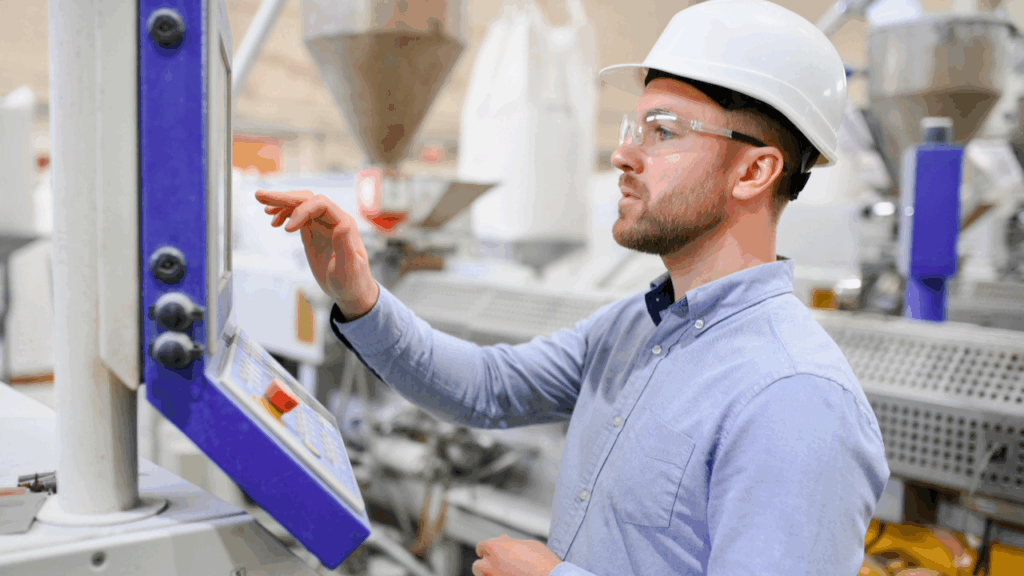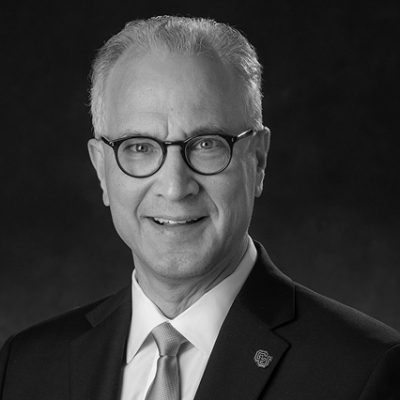The Hidden Costs of Onshoring Every Supply Chain

Part of the Made in Democracy series
In a small town in Ohio, a factory that once made shoes has stood empty for decades. Its closure became a symbol of America’s industrial retreat—a retreat that hit communities hard and fueled a longing for the past. Today, calls to bring all that manufacturing back have returned to the national conversation.
The impulse is understandable. But the idea that it is in America’s interest to onshore everything is dangerously misleading.
Strategic Resilience, Not Blanket Reshoring
America remains the world’s second largest manufacturer. It is a world leader in aerospace, semiconductors,medical technology, pharmaceuticals, and industrial machinery. The real issue isn’t whether America is making things. It’s that we no longer make everything, and that in some categories—especially where China dominates—we’ve become dangerously dependent.
This is why I’ve argued that democracies need to rebuild industrial power not as an act of nostalgia, but as a foundation for strategic resilience. But that doesn’t mean we can or should try to make everything at home.
Let me explain why.
1. Chasing Low-Wage Jobs Could Lower American Wages
Think about the shirt you’re wearing. It may have passed through five countries before reaching your closet—cotton from the U.S., spun into fabric in India, cut and sewn in Bangladesh, tagged and labeled in Vietnam, and shipped from a port in China.
That process is driven by labor costs and areas of expertise varying dramatically across borders. Trying to bring those same stitching jobs back to the U.S. would either drive-up prices or push wages down. A recent economic analysis observed that even without bringing back low-wage work, manufacturing wages now lag the private-sector average, undermining nostalgia for “good old factory jobs”. It queried, “Why put tariffs on foreign-made shoes, t-shirts, low-end toys and the like if making them in the US of A would put Americans to work in low-paid, low-productivity positions?”
We shouldn’t fight to win back the lowest-paid jobs in the global economy. We should fight to lead in the highest-value ones.
In other words, let Bangladesh stitch the T-shirts. Let us build the machines that weave the fabric.
2. It Would Fuel the Very Inflation Americans Fear
The COVID-19 pandemic reminded us how fragile global supply chains can be. But it also taught us what happens when supply is disrupted, and demand stays high: prices surge.
Imagine if everything—from toys to TVs to toothbrushes—had to be made under U.S. wage and regulatory conditions. A $15 toaster might cost $60 or higher. A $1,199 phone could become $1,500, $3,500, or much higher. School supplies would double. And the grocery bill? Don’t expect it to hold steady if every packaging plant, fertilizer maker, and farm equipment factory is forced back onshore.
This isn’t theoretical. The new blanket tariffs being imposed today are already raising prices across retail sectors. If we layer full onshoring on top of that, we risk turning strategic competition into self-inflicted runaway inflation.
3. It Would Shrink Our Strategic Resilience, Not Expand It
There’s a myth that self-sufficiency equals strength. But in war, disaster, or disruption, the opposite is often true.
Imagine a wildfire knocks out a U.S. transformer plant—one of only a few that now exist domestically. If we’ve cut off our partnerships abroad, we’re stuck. But if we’ve federated production with trusted allies—say, Korea for batteries, Canada for minerals, Japan for chip packaging—we can reroute and recover.
Resilience doesn’t mean making everything at home. It means having enough at home, plus trusted partners to fill the gaps.
4. We Should Lead in Innovation, Not Chase Commodity Margins
Years ago, I toured a factory in Minnesota that makes precision medical devices. Each product required cleanrooms, specialized engineers, and tolerances measured in microns. The value added in that one building was staggering—and the high wages reflected it.
That’s where America thrives: high-end semiconductors, aerospace, advanced biotech. Not in churning out commodity electronics or low-grade aluminum.
When we stretch ourselves thin trying to replicate every rung of the value chain, we dilute our advantage. We trade leadership in future technologies for headlines about bringing back the past.
5. It Would Undermine the Very Alliances That Make Us Strong
China doesn’t just build roads and factories—it builds influence. When it finances ports in Africa or railways in Eastern Europe, it gains leverage.
Our counterstrategy must include not just competing with China, but co-producing with allies. That means leveraging Finland’s expertise with icebreakers and Japan’s automation prowess.
If we try to onshore everything, we send the message: We don’t trust our friends either. That’s not strength—it’s strategic isolation.
A Smarter Path: Resilience, Not Retreat
We do need more industrial capacity. But it must be targeted:
- Onshore what we must for defense and wartime surge (e.g., semiconductors, magnets,pharmaceutical APIs)
- Co-produce with trusted allies where scale and diversification matter
- Leave low-risk, low-margin goods to the market
This is not protectionism. It’s precision industrial strategy—the kind that strengthens freedom and ensures that democracy can deliver in a dangerous world.
Final Thought
Bringing everything back sounds like a solution. But it’s really a slogan.
If we try to do it all at home, we’ll find ourselves with fewer partners, higher prices, lower wages—and less real power.
The world doesn’t need a fortress America. It needs a smart, resilient America—confident enough to lead, connected enough to outcompete, and secure enough to know when collaboration is strength.
That’s the America I believe in.
And that’s what it truly means to be Made in Democracy.
In line with my belief that embracing AI is essential to both personal and national success, this piece was developed with the support of AI tools, though all arguments and conclusions are my own.
Author
Mark Kennedy
Director & Senior Fellow
